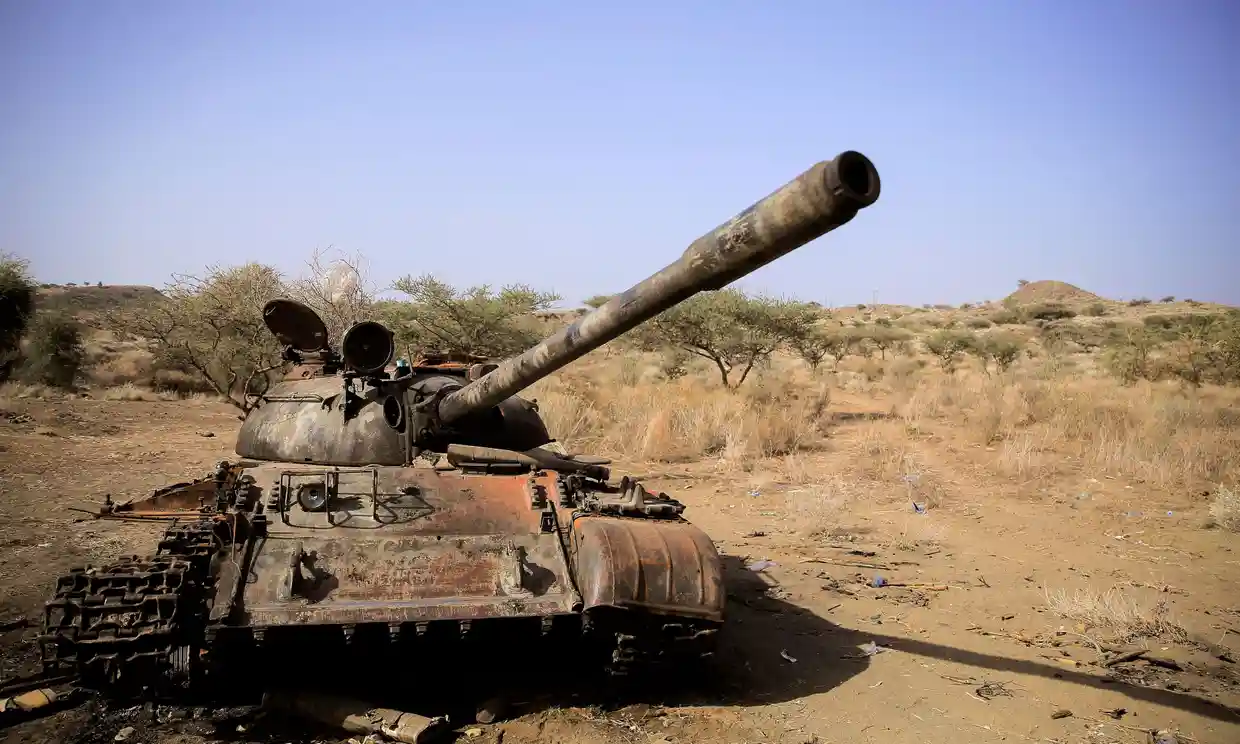Surrendering weapons is a central part of the November ceasefire agreement which seeks to end a conflict that has killed thousands
Tigrayan rebels have begun handing in heavy weapons, a key part of an agreement signed more than two months ago to end a deadly conflict in northern Ethiopia, a spokesperson for the rebel authorities said.
The demobilisation of Tigray forces is seen as central to the 2 November ceasefire agreement, alongside the restoration of services, resumption of humanitarian aid and withdrawal of Eritrean troops, who fought alongside Ethiopia’s army but were not party to the truce.
Fighting broke out in November 2020 when Ethiopia’s prime minister Abiy Ahmed deployed the army to arrest Tigrayan leaders who had been challenging his authority for months and whom he accused of attacking federal military bases.
The conflict created famine-like conditions for hundreds of thousands of Tigray’s population, killed thousands and displaced millions across northern Ethiopia.
The handover in the town of Agulae, around 30km northeast of the regional capital Mekelle, was overseen by a monitoring team comprising members of the two sides and a regional body, the Intergovernmental Authority on Development (IGAD).
“Tigray has handed over its heavy weapons as part of its commitment to implementing the #Pretoria agreement” that was signed between Ethiopia’s government and Tigrayan rebels, Tigray People’s Liberation Front spokesperson Getachew Reda tweeted Wednesday.
“We hope & expect this will go a long way in expediting the full implementation of the agreement. We hope & expect!”
Tigray has handed over its heavy weapons as part of its commitment to implementing the #Pretoria agreement, and the Monitoring & Verification Team has confirmed it. We hope & expect this will go a long way in expediting the full implementation of the agreement. We hope & expect!
— Getachew K Reda (@reda_getachew) January 10, 2023A deal on the implementation of the agreement signed on 12 November said the disarmament of heavy Tigrayan weapons would take place at the same time as the withdrawal of foreign and non-federal forces.
Neighbouring Eritrea has supported the Ethiopian army in the region but did not participate in the Pretoria talks. Eritrean soldiers pulled out of several major towns in Tigray late last month but have not left Tigrayan territory, according to residents. Eritrea has declined to comment on whether troops will leave.
An Ethiopian government delegation, including the prime minister’s national security adviser Redwan Hussein and several ministers, visited Tigray’s capital Mekelle on 26 December, marking a major step in the peace process.
A few days later, on 29 December, Ethiopian federal police entered Mekelle for the first time in 18 months.
The precise toll of the conflict, which was largely fought amid media restrictions, is unknown.
The International Crisis Group thinktank and rights group Amnesty International have described it as “one of the deadliest in the world”.
The fighting stopped after November’s peace deal and the rebels have claimed to have “disengaged” 65% of their fighters from the frontlines.
But Tigrayans have denounced the “atrocities” they say have been committed by Eritrea’s army and the forces of Ethiopia’s neighbouring Amhara region.
Humanitarian operations have been ramped up since the peace deal, but the amount of food and medical aid being delivered remains far below the enormous needs.
Mekelle was connected to the national power grid on 6 December and Ethiopia’s main bank CBE said on 19 December that it was resuming operations in some towns. Telephone communications with the region have begun to be restored.

